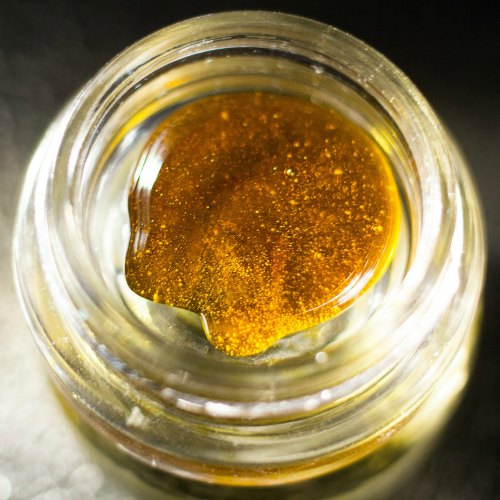Jan 22, 2016 | California Marijuana Laws, Marijuana Legalization, MMJ News
When it comes to legal marijuana and setting up the legal entity for a new medical marijuana business, entrepreneurs need to first focus on what is allowed by their respective state. Some states allow traditional LLC or corporate structures while others require a non-profit or “not-for profit” collective or a cooperative, as you can see from the California non-profit collective collective form. Entrepreneurs should also be careful to follow other small details in the guidelines for marijuana related businesses.
No matter which entity you choose, most lawyers recommend some form of incorporate, largely to protect yourself from personal liability for business debts and lawsuits. Yes, you can go it alone as a sole proprietor or run your business as a partnership. But it places additional obstacles in your way. Please also remember that the liability protection of a corporation or LLC does not extend to criminal activities. As such, you are still subject to arrest (particular from a Federal standpoint) although these prosecutions appear to be decreasing.
There are the questions of whether to take on a traditional incorporation or a limited liability company (or LLC). This question is more difficult to answer – both are useful in particular circumstances. Then there is the issue of whether to become a non-profit or a for-profit company. These rules vary by state, sometimes with fairly dramatic differences and other times with only subtle distinctions. It’s best to find the appropriate code section for your state, typically organized under the Secretary of State’s office.
(more…)
Jan 6, 2016 | California Marijuana Laws, Proposed MMJ Law Changes
The MMRSA, to give it a more pronounceable handle went live on New Year’s Day, 2016, albeit with a deadline typo that is causing confusion in a number of cities. What follows is a ‘layperson’s introduction’. I’ll provide a link to more detailed information down the page.
The Structure of the Act
The MMRSA consists of three separate bills enacted together in September 2015. Its goal is to create an all-inclusive legal framework for growing, harvesting, processing, and manufacturing medical cannabis. It further regulates how the product may be tested, sold, transported, distributed and delivered.
The State licensing apparatus could take upwards of a year before being fully in place. In the interim, individual cities may enact parallel local ordinances to facilitate the supply of medical marijuana in their jurisdictions. Medical marijuana providers in California should apply for resale permits from the state board of equalization as soon as possible, as this will a necessary condition for a state license.
The Main Components
– Section AB 200 (proposed by Reps. Bonta, Cooley, Lackey, and Jones-Sawyer) establishes a Bureau of Medical Marijuana Regulation administered by the Department of Consumer Affairs. This has responsibility for maintaining an Internet database of licensees, and reporting movements of cannabis, and cannabis products throughout the state.
(more…)
Jan 4, 2016 | MMJ News
Maybe it’s time to zero out your marijuana business’s marketing and advertising budget.
The U.S. Postal Service has issued a statement saying that it’s illegal to mail material with marijuana advertising, even in those states that have legalized marijuana. The USPS cited the federal Controlled Substances Act as the legal underpinning for its decision, according to Thomas Marshall, the Postal Service’s general counsel.
Additionally, it’s illegal to use the U.S. Mail to facilitate any act that constitutes a felony, Marshall said.
The Post Office took the step of issuing the statement, after Democratic members of Oregon’s congressional delegaton asked Postmster General Megan Brennan for a more “detailed explanation” of its policy. The delegation’s action followed a warning sent by the Oregon Newspaper Publishers Association to its members, urging them to reject any advertising related to marijuana. Many newspapers are circulated through the U.S. Mail.
(more…)
Dec 22, 2015 | Marijuana Legalization, MMJ News
Cannabis extraction is a process that releases essential oils from cannabis flowers, in order to deliver better patient treatment, or to produce a more concentrated high for seasoned smokers. The resulting concentrate variously goes by the name cannabis oil, budder, wax, or shatter depending on the quality of the product and / or the preferences of the consumer. In most instances, the user smokes the product but it can also be used to make edibles.
Common Methods of Cannabis Extraction
Extraction of cannabis oil can be a complex, potentially dangerous activity, with the exception of the dry sieve and water methods we describe shortly. If, for whatever reason you decide to do your own extraction using other methods, we recommend you do significant research first, perform extraction in a well ventilated area, wear flameproof clothing, and have a fire extinguisher nearby. Here are the commonest methods currently in use.
Cannabis Extraction Using Non-Hydro Carbons
– Dry Sieve Extraction Method – Equipment Cost: Minimal
This method for releasing resin involves agitating the raw product over a screen that allows the resin buds through for compression into blocks. Works best with frozen material that snaps easily.
– Isopropyl Alcohol Extraction Method – Equipment Cost: Minimal
Alcohol is highly water-soluble and works by dissolving the heavier oils from the plant matter. The mixture must then be carefully heated to remove the alcohol from cannabis oil.
(more…)
Dec 18, 2015 | Collective Operations, MMJ News
Banking on standard tax deductions from your marijuana business? Don’t count on it.
Four states and the District of Columbia have legalized recreational marijuana. While that may be a good thing for state tax collections in Colorado, Washington, Oregon, Alaska and Washington, D.C., the federal level is an entirely different story.
The issue is that the feds still regulate marijuana as a controlled substance. That means it’s illegal, on the federal level, to sell or possess the drug. That legal status also gums up the works when it comes to the application of tax laws.
A memorandum from the I.R.S. chief counsel, numbered 201504011, spells out in more detail the legal position of the feds.
No Tax Deductions for Controlled Substances
The relevant I.R.S. tax code section is 280E, which specifically forbids deductions for any business that traffics controlled substances. The I.R.S., on a regular basis, uses the code language to deny requested tax deductions for marijuana businesses.
(more…)
Dec 15, 2015 | Marijuana Legalization, MMJ News
Some investment gurus are comparing medical marijuana investment opportunities to the 1849 Gold Rush that lead to the declaration of the state of California. There were three types of beneficiaries in those days. These were the miners who did the work, the bartenders and ladies that entertained them after dark, and the investors who bankrolled their businesses.
As prohibition fades before relentless challenge for universal legalization, the possibilities are increasingly evident of making relatively large sums of money through direct investment. If California is budgeting $134 million in tax revenue, how much money do you think is changing hands at the coalface? Ten per cent of that through passive investment seems a better prospect than publicly traded shell and penny stocks.
Tracking Down a Good Direct Investment in MMJ
Specialist assessment is required before passive investment in the emerging medical marijuana industry, because the company owners lack seasoned business skills. Many are emerging entrepreneurs who have been growing medical marijuana in their backyards, and in some instances selling. They may lack the skills to promote a good investment that just needs cash to take a positive step.
(more…)
Dec 2, 2015 | California Marijuana Laws, Proposed MMJ Law Changes
When Gov. Jerry Brown signed the Medical Marijuana Regulation and Safety Act on Oct. 9, 2015, he endorsed a notification calling on Californian cities to take immediate action to enact local laws or bans for medical marijuana in their areas as they wish. If these do not do so before March 1, 2016, then the general state medical marijuana laws in California becomes the authority for licensing and regulation.
Medical Marijuana Continues to Be a Contentious Issue
The dust has still not fully settled on the 1995 Proposition 215 decided by referendum. This allows ‘seriously ill’ patients under medical supervision to legally cultivate, possess and use medical marijuana for personal consumption. Even with the 2003 California Medical Marijuana program in place, some cities are still struggling to enact local ordinances to incorporate this into their urban planning.
(more…)
Nov 21, 2015 | Collective Operations, MMJ News
Two things concerning the U.S.A. and marijuana are inevitable. Firstly, we are moving towards a post-prohibition era. Secondly, medical and recreational marijuana will likely fall under the Food and Drug Administration (FDA) guidance when we have Federal Marijuana legalization. The reasons for this are hard to argue – marijuana can be utilized as both medicine and food.
How the Food and Drug Administration May Regulate
The FDA is responsible for protecting and promoting public health through the regulation and supervision of, among others tobacco and medication. The keyword is public health. The FDA sets standards for the manufacture, distribution and supply of both. It wants to know the American public will be safe according to those standards.
Where necessary the Federal Drug Administration may also implement post-market drug safety surveillances, whereby is must be told of every unexpected, serious or fatal reaction to a medicine. Where it considers this a possibility, it lists the product on a schedule requiring a medical doctor to prescribe the product, and the end supplier to maintain records.
The Implications for Dispensaries and Cooperatives
These are likely to remain small and independent until the mainline financial sector includes them as their clients. Clearly, they do not have the administrative capacity of a Pfizer or a CVS Health. They will have to look to software-as-a-service solution on a cloud. Some of these providers are already in place.
What makes Marijuana Seed-to-Sale software special?
(more…)
Nov 16, 2015 | Collective Operations, MMJ News
Many medical marijuana dispensaries are forced to deal mainly in cash. Banks have been slow to grant traditional bank accounts to medical marijuana dispensaries (or related services). Without a bank account is difficult to set up a merchant account or accept credit card payments from patients. Allowing a patient to purchase on credit often increases the amount of daily transactions/totals.
MMJ businesses that are unable make deposits may accumulate large sums of cash, which is a risk. Also, having to pay cash for business expenses adds the further complication of not having a digital record available when completing tax returns. Inflows and outlays can be accidentally filed incorrectly, making accounting and record keeping difficult. Fortunately, this is avoidable.
How a Merchant Account Can Help Your Cannabis Business
Having the ability to accept “plastic” payments will increase average transaction size and total number of transactions. This will help insure you are maximizing your reimbursements and covering overhead. Luckily we found a high quality, cost effective merchant account provider for medical marijuana dispensaries (and related businesses). They are a well-established processor that has delivered cutting edge service since 2004. This cost-effective solution is performed via any smartphone. Once cleared, the funds are available within two days.
(more…)
Nov 6, 2015 | California Marijuana Laws, Marijuana Legalization, Proposed MMJ Law Changes
Attached is a PDF document that was prepared by Hon. Steven K. Lubell (Ret.) at californiamedicalmarijuanalicensing.com. The “Medical Marijuana Regulation and Safety Act – Application Requirements” document outlines the new requirements that individuals will need to follow in order to obtain a license to cultivate, distribute, manufacture/process, or dispense medical marijuana in California. The requirements include:
– Live Scan
– Comply with local ordinances
– Provide documentation that you have a compliant property (or lease) in place
– Ensure property is at least 600 Feet from any qualifying school (as required by Section 11362.768 H&SC)
– Labor Peace Agreement: Only applies to applicants with 20 or more employees.
– Obtain a Seller’s Permit
– Pay all applicable fees
Another section discusses the meaning of “applicant” or owner:
– Regular owners or anyone with interest in the operations.
– If the owner is an entity, “owner” includes within the entity each person participating in the direction, control, or management of, or having a financial interest in, the proposed facility.
– If the applicant is a publicly traded company, “owner” is anyone owning 5 percent or more of the outstanding shares and the CEO.


